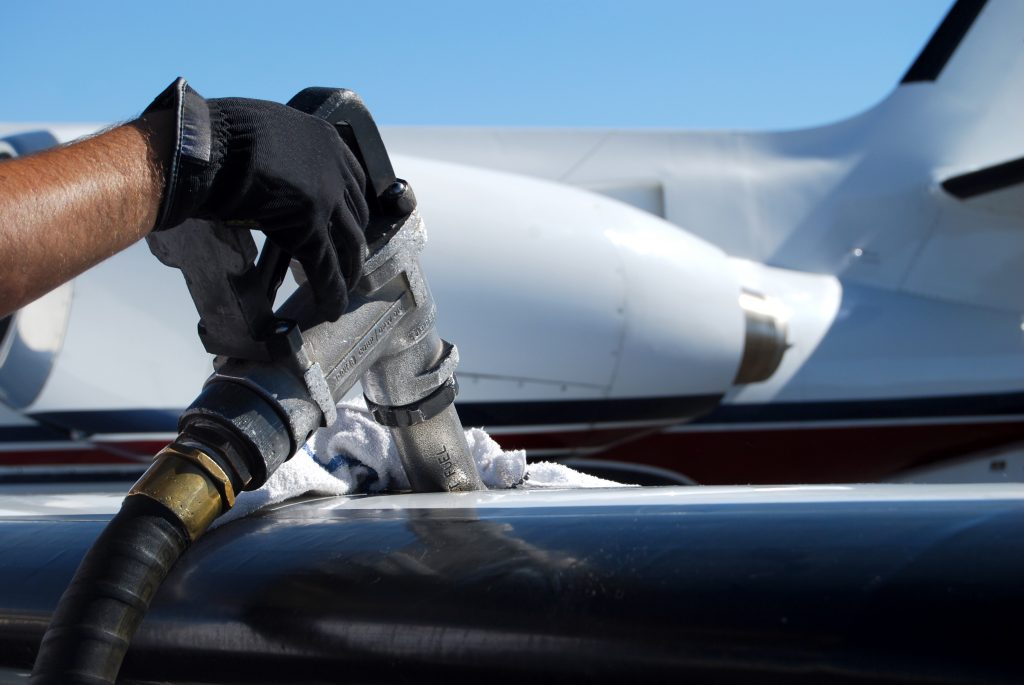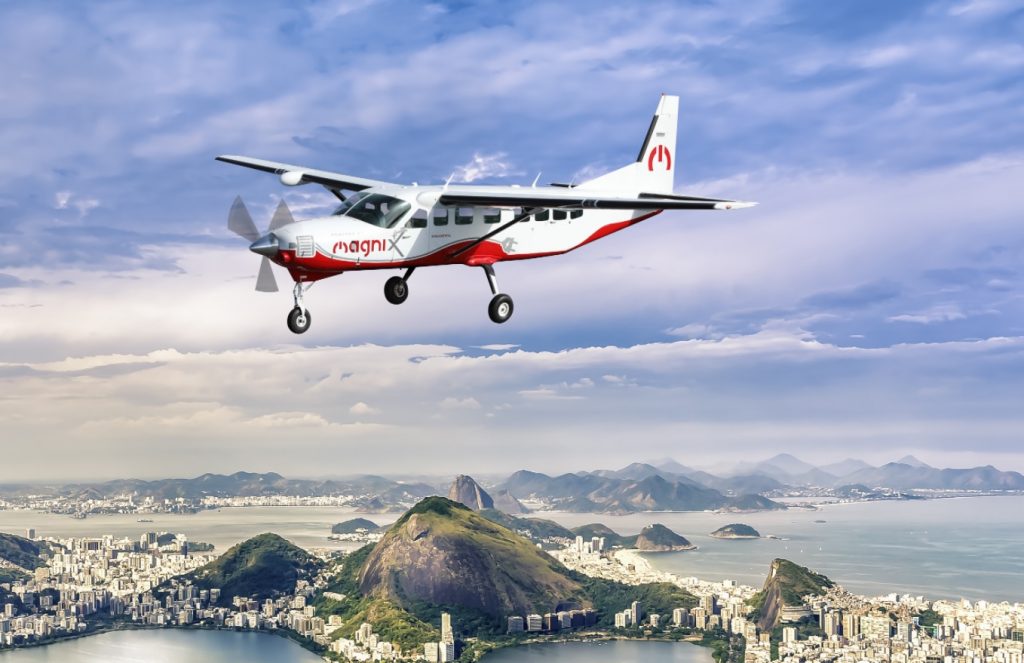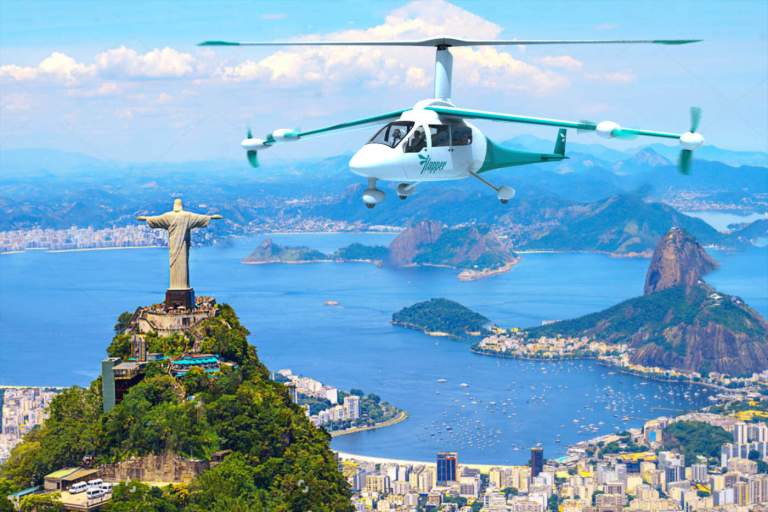Switch to:
 EN
EN  Português (PT)
Português (PT)  Español (ES)
Español (ES)
Despite all the ills brought about by the COVID-19 pandemic, causing enormous difficulties to the already sensitive civil aviation sector, we have seen executive aviation continually advancing towards improving its environmental practices – consequently, bringing greater comfort and safety to its users and, of course, benefits to the entire sector.
With the advent of environmental adaptations designed for this and the next generations (in addition to the commitments signed between several nations aimed at the constant reduction of the environmental impact arising from the use of fossil fuels), sustainability has become a key factor for manufacturers and operators, especially in executive aviation and in air taxis.
Business jets were, until the middle of the last decade, responsible for 0.1% of the total carbon emissions in all flights carried out around the world. However, even if the emission level is low compared to the emissions from regular aviation, which holds the majority of daily departures, the carbon emissions per passenger within executive aviation can be up to 20% higher compared to what is emitted per passenger on large commercial jets.
Fuels: Much Needed and Coming from Many Sources

State-of-the-art executive jets, with autonomy for transcontinental flights, can already be seen using renewable and non-petroleum fuels. This is the case for the entire range of Gulfstream jets, from the manufacturer’s “entry” level model, the G280, to what is considered the ultimate in long-range business jets, the G650 Extended Range. The project that made it possible to use renewable energy in these aircraft is the result of a cooperation between Gulfstream Aerospace itself and Boston-based World Energy. The solutions found for the production of the fuel that flies around the globe in the wings (and in the tanks!) of aircraft take into account the combination of different oils, such as greases and fats, which after rigorous refining and processing become, finally, a fuel source. In addition, animal waste and fats from restaurants and the huge food supply chain within the United States are also used in the production of renewable aviation fuels.
In Brazil, according to the director general of Boeing Brazil, Landon Loomis, studies carried out by Boeing itself indicate that our country has the capacity and supplies for the annual and large-scale production of at least 9 billion liters of fuel for sustainable aviation. This expressive number represents, considering the number of pre-pandemic flights, 125% of the annual consumption of fossil fuel in Brazilian aviation, considering all its sectors — regular aviation (airlines), executive aviation (planes and helicopters), military aviation, and agricultural aviation.
Carbon Offsetting and Carbon Credits: What Does It Mean in Practice?

During the gradual process aimed at reaching net zero carbon emissions, carbon offsetting has become a recurring practice within civil aviation, through practices adopted by companies and also through the acquisition or sale of carbon credits.
In practice, carbon offsetting is a joint effort between countries, organizations, and companies aimed at replacing the carbon dioxide absorbed over the years in the atmosphere, as well as anticipating the gas still to be absorbed. This measure, in addition to mitigating past and future harmful effects on the environment, reduces environmental impacts (such as significant climate change, for example) and promotes sustainability.
For compensation to occur, countries, organizations, and companies capable of reducing their emissions to satisfactory levels earn credits and certifications, which confirm their efforts in the pursuit of sustainability. On the other hand, those who fail to meet the targets imposed for emission reduction acquire credits from those who were successful, generating compensation.
Flapper: Pioneering Sustainability in Executive Aviation
Seeking to actively collaborate in the efforts for the complete remission of carbon emissions, Flapper once again stands out for being a pioneer in these solutions. In addition to consolidating itself as the leading platform in Latin America in on-demand aviation, Flapper increasingly seeks to comply with the most appropriate sustainability practices in aviation, being committed to zero carbon emissions by 2030 and further expressing all the innovative characteristics present in the company’s DNA.
Reflecting this, on January 25, 2022, Flapper signed a LOI (Letter of Intent) with Jaunt Air Mobility, an aerospace company based in the US state of Texas, for the purchase of 25 vertical take-off and landing (eVTOL) aircraft. The aircraft are 100% electric, powered by batteries and completely independent from the use of non-renewable fuels. The aircraft will serve the most important markets in Latin America, including Mexico City, Santiago de Chile, Bogotá, Rio de Janeiro, and São Paulo.
Jaunt Air Mobility joins the other partnerships signed by Flapper over the last few months, such as Embraer, responsible for the eVTOL Eve project, in addition to Electra and MagniX.
By the end of the decade you, our customer, will be able to enjoy all the modernity offered by the new aircraft available at Flapper. With this, in addition to traveling even faster and more exclusively, you will be actively collaborating in more sustainable flights taking off daily!


